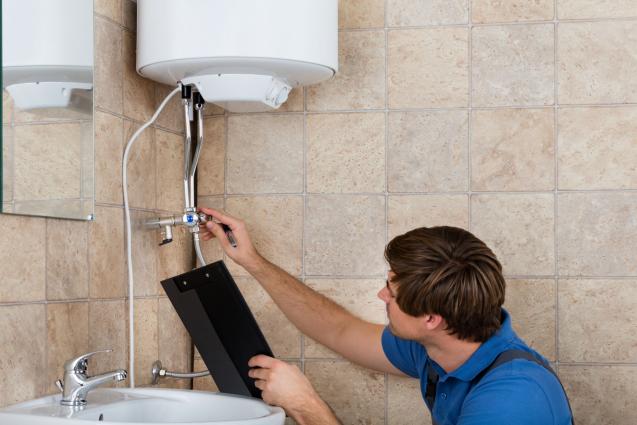
Central Coast Electric Bills: How Your Habits Impact Costs
By Fluid Plumbing|April 19, 2024
How many times have you opened your electric bill and been taken aback by the sudden spike in costs? Deciphering the costs associated with electricity bills can seem like a battle, but understanding factors affecting the Central Coast’s electricity bills is a victory within reach. This article aims to provide you with insight into how your daily routines and choices impact your electric bills, outlining everything from the basic structure of electricity bills on the Central Coast to the role played by appliances, habits, effective strategies for cost reduction, and how energy providers come into play.
Understanding the Basics of Electric Bills in Central Coast
Before delving into the difference your habits make to your bills, it's worth taking a moment to understand how electricity billing in the Central Coast actually functions. A fundamental breakdown of an electricity bill would include charges for energy usage, supply, network services and environmental programs, among others. But, it’s important to note that the final amount is also influenced by other factors. The time you use most of your electricity, known as peak and off-peak times, can influence your bill. Plus, your chosen energy provider and their varying rates play a part. And let's not forget the role of seasons – the need to stay cool in summer or warm in winter can cause a noticeable increment in your bill.
Energy Consumption: How Your Appliances Impact Your Electric Bills
Energy efficiency is one of those buzz-terms that gets thrown around a lot. But what does it really mean? Simply, it's about maximising utility and reducing waste on every watt of electricity consumed. To control your energy expenditure, it's crucial to identify the appliances that top the list of energy guzzlers. Refrigerators running incessantly, air conditioners battling the summer heat, electric heaters and water heaters taking the chill off colder weather, and entertainment systems providing round-the-clock amusement, all consume enormous amounts of electricity. Older appliances pose additional concerns because they often lack modern energy-efficient features, hence leading to inordinate energy consumption. This doesn't necessarily mean tossing out all your appliances. Being more mindful about usage, running appliances during off-peak hours and even maintaining them properly can ensure they use electricity more efficiently.
Daily Habits That Increase Your Electric Bills
Believe it or not, seemingly inconspicuous daily habits can be relentlessly nibbling at your wallet. Many of us have the tendency to leave lights on in unoccupied rooms or keep our devices plugged in indefinitely. These practices consume more energy than we realise and the costs associated with them conveniently fly under the radar. Over time, such day-to-day practices can dent your finances, as the extra electricity usage translates into a steadily mounting electric bill.
Effective Strategies to Lower Your Electric Bills
The good news is that with a little bit of awareness and proactive energy management, we can keep our electricity bills within acceptable margins. Unplug your electronic devices and appliances when they're not in use, and opt for natural light instead of switching on lights during the day. Taking steps to ensure your home is well-insulated can also significantly reduce the demand on heaters and air conditioners. Upgrading to energy-efficient appliances may require a bit of an initial investment, but the returns in terms of reduced energy consumption are well worth it. Further, exploring renewable energy options like solar panels could provide a long term solution to high electric bills.
The Role of Energy Providers in Your Electric Bills
Last but certainly not the least, is the role of energy providers in tallying up the sum on your electricity bill. In the Central Coast, there are several energy providers, and each comes with its own set of charges. Hence, it is advisable to periodically review and compare plans to see if switching may be beneficial in the long run. Moreover, the government often offers incentives or rebates on certain energy plans, which can substantially lower your costs when utilised effectively.
Conclusion
Energy conservation is an issue that extends beyond the realm of personal finance. It's about making thoughtful choices for a sustainable future. Understanding the real and tangible impact of our daily habits on our electric bills empowers us to take control and make a difference both to our wallets and the planet. By implementing energy-saving strategies and remaining aware of the various components that make up our electricity bills, each one of us on the Central Coast can take responsibility for our energy consumption and play our part in ensuring a greener tomorrow.
Understanding the Basics of Electric Bills in Central Coast
Before delving into the difference your habits make to your bills, it's worth taking a moment to understand how electricity billing in the Central Coast actually functions. A fundamental breakdown of an electricity bill would include charges for energy usage, supply, network services and environmental programs, among others. But, it’s important to note that the final amount is also influenced by other factors. The time you use most of your electricity, known as peak and off-peak times, can influence your bill. Plus, your chosen energy provider and their varying rates play a part. And let's not forget the role of seasons – the need to stay cool in summer or warm in winter can cause a noticeable increment in your bill.
Energy Consumption: How Your Appliances Impact Your Electric Bills
Energy efficiency is one of those buzz-terms that gets thrown around a lot. But what does it really mean? Simply, it's about maximising utility and reducing waste on every watt of electricity consumed. To control your energy expenditure, it's crucial to identify the appliances that top the list of energy guzzlers. Refrigerators running incessantly, air conditioners battling the summer heat, electric heaters and water heaters taking the chill off colder weather, and entertainment systems providing round-the-clock amusement, all consume enormous amounts of electricity. Older appliances pose additional concerns because they often lack modern energy-efficient features, hence leading to inordinate energy consumption. This doesn't necessarily mean tossing out all your appliances. Being more mindful about usage, running appliances during off-peak hours and even maintaining them properly can ensure they use electricity more efficiently.
Daily Habits That Increase Your Electric Bills
Believe it or not, seemingly inconspicuous daily habits can be relentlessly nibbling at your wallet. Many of us have the tendency to leave lights on in unoccupied rooms or keep our devices plugged in indefinitely. These practices consume more energy than we realise and the costs associated with them conveniently fly under the radar. Over time, such day-to-day practices can dent your finances, as the extra electricity usage translates into a steadily mounting electric bill.
Effective Strategies to Lower Your Electric Bills
The good news is that with a little bit of awareness and proactive energy management, we can keep our electricity bills within acceptable margins. Unplug your electronic devices and appliances when they're not in use, and opt for natural light instead of switching on lights during the day. Taking steps to ensure your home is well-insulated can also significantly reduce the demand on heaters and air conditioners. Upgrading to energy-efficient appliances may require a bit of an initial investment, but the returns in terms of reduced energy consumption are well worth it. Further, exploring renewable energy options like solar panels could provide a long term solution to high electric bills.
The Role of Energy Providers in Your Electric Bills
Last but certainly not the least, is the role of energy providers in tallying up the sum on your electricity bill. In the Central Coast, there are several energy providers, and each comes with its own set of charges. Hence, it is advisable to periodically review and compare plans to see if switching may be beneficial in the long run. Moreover, the government often offers incentives or rebates on certain energy plans, which can substantially lower your costs when utilised effectively.
Conclusion
Energy conservation is an issue that extends beyond the realm of personal finance. It's about making thoughtful choices for a sustainable future. Understanding the real and tangible impact of our daily habits on our electric bills empowers us to take control and make a difference both to our wallets and the planet. By implementing energy-saving strategies and remaining aware of the various components that make up our electricity bills, each one of us on the Central Coast can take responsibility for our energy consumption and play our part in ensuring a greener tomorrow.



